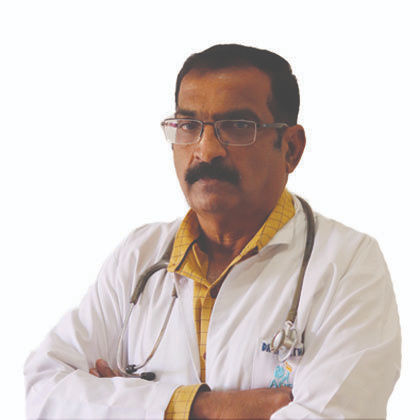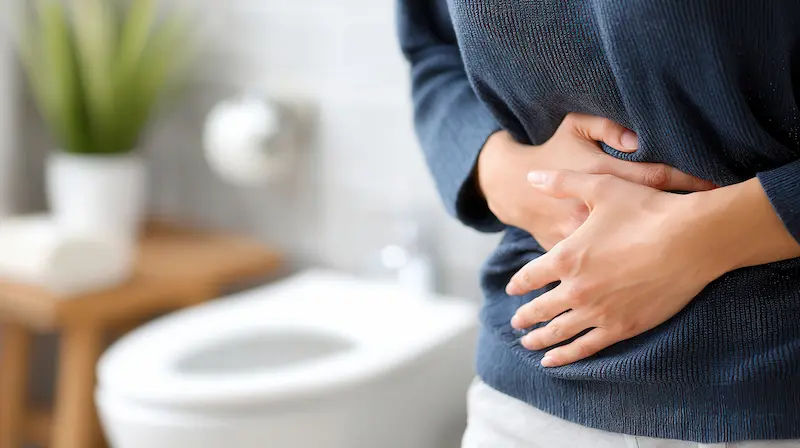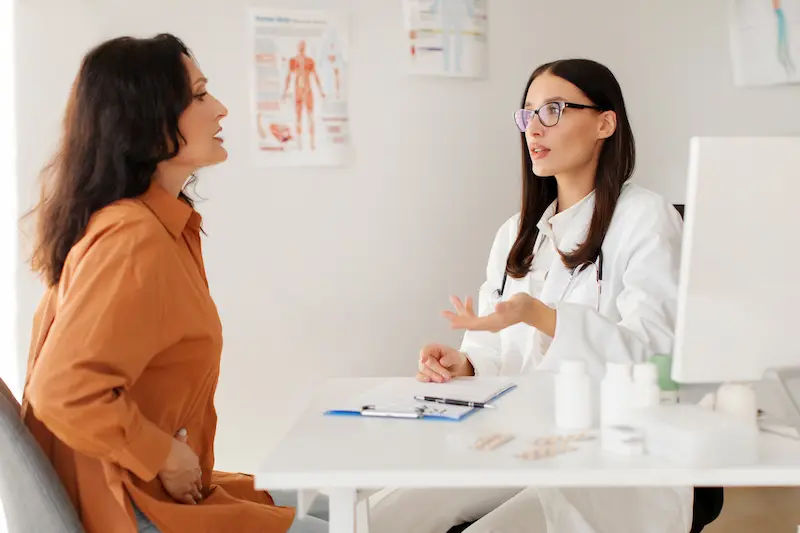Guide to Loose Motions Dos And Donts
Get a complete guide to loose motions, including key dos and don’ts for quick relief. Learn safe home remedies, hydration tips, and when to seek medical help.

Written by Dr. Md Yusuf Shareef
Reviewed by Dr. Shaik Abdul Kalam MD (Physician)
Last updated on 13th Jan, 2026

Loose motions, or diarrhea, are an uncomfortable and disruptive reality that almost everyone experiences at some point. Characterized by frequent, watery bowel movements, it can range from a mild inconvenience to a severe condition requiring medical attention. While your first instinct might be to reach for over-the-counter solutions, knowing the right loose motions dos and don'ts is crucial for a swift and safe recovery. This guide goes beyond basic advice, offering a detailed, step-by-step plan to manage symptoms, prevent dehydration, and get your digestive system back on track. We'll cover everything from immediate home care and dietary choices to crucial warning signs that mean it's time to see a doctor. Let's navigate this uncomfortable situation with knowledge and confidence.
Understanding Loose Motions: More Than Just an Upset Stomach
Loose motions occur when your digestive system doesn't absorb enough water from your stool, or when it produces extra fluid, resulting in watery, unformed bowel movements. This can be accompanied by cramping, bloating, nausea, and an urgent need to use the bathroom.
Common Causes of Diarrhea
Understanding the cause can help in management and prevention. Common culprits include:
• Viral Infections: Norovirus and rotavirus are frequent causes, often leading to short-term, intense bouts.
• Bacterial Infections: Consuming food or water contaminated with bacteria like E. coli or Salmonella (often called food poisoning).
• Parasites: Tiny organisms found in contaminated food or water.
• Medications: Antibiotics, which can disrupt the natural balance of gut bacteria, are a common trigger.
• Food Intolerances: Difficulty digesting certain substances like lactose (found in dairy).
• Underlying Conditions: Irritable Bowel Syndrome (IBS), Inflammatory Bowel Disease (IBD like Crohn's or ulcerative colitis).
Consult a Top Specialist
The Essential Dos: Your Action Plan for Recovery
This is the single most important step. You're losing vast amounts of water and electrolytes, which are essential for your body's function.
• Oral Rehydration Solution (ORS): This is the gold standard. ORS packets are available at pharmacies and contain the perfect balance of salts and sugars to help your intestines absorb water efficiently. It's more effective than water alone.
• Water: Sip small amounts of water consistently throughout the day. Gulping large quantities can sometimes trigger more cramping.
• Clear Broths and Soups: Chicken, vegetable, or bone broth provide hydration, electrolytes, and a small amount of nutrients.
• Coconut Water: A natural source of electrolytes like potassium.
Do Eat the Right Foods (The BRAT Diet and Beyond)
The old advice was to "starve" a stomach bug, but now doctors recommend gently reintroducing binding foods as soon as you can keep them down.
• The BRAT Diet: This acronym stands for Bananas, Rice, Applesauce, and Toast. These foods are low in fiber, bland, and can help make stools firmer.
• Other Gentle Options: As you start to feel better, you can add:
• Plain crackers or pretzels
• Boiled potatoes (without butter)
• Steamed chicken (skinless and unseasoned)
• Oatmeal
• Yogurt with live cultures (probiotics) can help restore healthy gut bacteria, but ensure you're not lactose intolerant.
Do Get Plenty of Rest
Your body is working hard to fight off an infection or irritant. Physical exertion diverts energy away from this critical task. Allow yourself to sleep and relax. This is a vital part of the treatment for diarrhea at home.
Do Practice Meticulous Hygiene
• Loose motions are often contagious. Protect yourself and others.
• Wash your hands thoroughly with soap and water after every bathroom visit and before handling food.
• Use a separate towel to dry your hands.
• If someone in your household is sick, disinfect commonly touched surfaces like doorknobs, faucets, and toilet handles.
Do Consider Probiotics
Probiotics are beneficial bacteria that can help restore the natural balance of your gut flora, especially after a course of antibiotics or a gastrointestinal infection. Look for supplements or yogurts containing Lactobacillus and Bifidobacterium strains.
The Critical Don'ts: What to Avoid at All Costs
Below are a few critical don’ts,
Don't Drink Problematic Foods
Some beverages can irritate your digestive system or worsen dehydration.
• Caffeinated Drinks: Coffee, strong tea, and colas act as diuretics, promoting fluid loss.
• Alcohol: A major diuretic and gut irritant.
• Sugary Drinks: Fruit juices, sodas, and sports drinks can be high in sugar, which can draw water into the intestines and worsen watery diarrhea.
• Dairy Products: Avoid milk, cheese, and creamy foods initially, as temporary lactose intolerance can occur during and after a bout of diarrhea.
Don't Eat Problematic Foods
• Avoid foods that are hard to digest or can stimulate the gut.
• High-Fiber Foods: Raw vegetables, whole grains, and nuts can be rough on a sensitive system.
• Fatty, Greasy, or Fried Foods: These are difficult to digest and can exacerbate symptoms.
• Spicy Foods: Can significantly irritate the digestive lining.
• Highly Processed Foods: Often contain additives and high levels of sugar or fat.
Don't Overuse Anti-Diarrheal Medications
• Medications like loperamide (Imodium) can be helpful for short-term control, especially if you need to travel. However, they are not always the right choice.
• Why to Be Cautious: If your diarrhea is caused by an infection, these medications can trap the pathogen inside your body, potentially prolonging the illness. They should be avoided if you have a fever or bloody stools. Always consult a doctor or pharmacist before use.
Don't Ignore Your Body's Warning Signs
While most cases are self-limiting, some symptoms are red flags. Knowing when to see a doctor for diarrhea is crucial.
When to Seek Medical Attention Immediately
It's time to put the home care aside and call a healthcare professional if you experience any of the following symptoms of severe diarrhea:
• Diarrhea lasts more than 48 hours in adults, or 24 hours in children.
• Signs of dehydration: Dark urine, extreme thirst, dry mouth, dizziness, lightheadedness, or little to no urination.
• Severe abdominal or rectal pain.
• A fever of 102°F (39°C) or higher.
• Stools containing blood or pus.
• Black, tarry stools.
Conclusion
Managing loose motions effectively is about a balanced approach of proactive care and knowing what to avoid. By diligently following the dos, prioritizing hydration with ORS, eating bland binding foods, and resting, you give your body the best tools to heal. Simultaneously, avoiding the don'ts, like problematic foods, drinks, and the premature use of medications—prevents further irritation. Most importantly, listen to your body. Recognizing the warning signs of a more serious condition can prevent complications and ensure you get the professional help you need. Remember, these episodes are usually short-lived. With patience and the right care, you'll be back to feeling like yourself in no time.
Consult a Top Specialist
Consult a Top Specialist

Dr. Rajib Ghose
General Physician/ Internal Medicine Specialist
25 Years • MBBS
East Midnapore
VIVEKANANDA SEBA SADAN, East Midnapore

Dr. Ajay K Sinha
General Physician/ Internal Medicine Specialist
30 Years • MD, Internal Medicine
Delhi
Apollo Hospitals Indraprastha, Delhi
(200+ Patients)
Dr. Indrajit Das
General Physician/ Internal Medicine Specialist
4 Years • "MD (Internal medicine) : Gauhati Medical College and Hospital, Guwahati (2018-2021) MD (Pathology) : Gauhati Medical College and Hospital, Guwahati (2012-2015) MBBS (Bachelor of Medicine, Bachelor of Surgery) : Silchar Medical College, Assam (2003-2008) "
Guwahati
Apollo Excelcare Hospital, Guwahati

Dr. Mohammed Sharouk Khader
General Physician/ Internal Medicine Specialist
11 Years • MBBS, Bach. of Med. & Surg., Dip. of American Board of Family Med.
Chennai
Apollo Hospitals Greams Road, Chennai
(125+ Patients)

Dr. S Ananth Kumar
General Physician/ Internal Medicine Specialist
41 Years • MBBS; MD
Hyderabad
Apollo Hospitals Jubilee Hills, Hyderabad
(125+ Patients)
Consult a Top Specialist

Dr. Rajib Ghose
General Physician/ Internal Medicine Specialist
25 Years • MBBS
East Midnapore
VIVEKANANDA SEBA SADAN, East Midnapore

Dr. Ajay K Sinha
General Physician/ Internal Medicine Specialist
30 Years • MD, Internal Medicine
Delhi
Apollo Hospitals Indraprastha, Delhi
(200+ Patients)
Dr. Indrajit Das
General Physician/ Internal Medicine Specialist
4 Years • "MD (Internal medicine) : Gauhati Medical College and Hospital, Guwahati (2018-2021) MD (Pathology) : Gauhati Medical College and Hospital, Guwahati (2012-2015) MBBS (Bachelor of Medicine, Bachelor of Surgery) : Silchar Medical College, Assam (2003-2008) "
Guwahati
Apollo Excelcare Hospital, Guwahati

Dr. Mohammed Sharouk Khader
General Physician/ Internal Medicine Specialist
11 Years • MBBS, Bach. of Med. & Surg., Dip. of American Board of Family Med.
Chennai
Apollo Hospitals Greams Road, Chennai
(125+ Patients)

Dr. S Ananth Kumar
General Physician/ Internal Medicine Specialist
41 Years • MBBS; MD
Hyderabad
Apollo Hospitals Jubilee Hills, Hyderabad
(125+ Patients)




